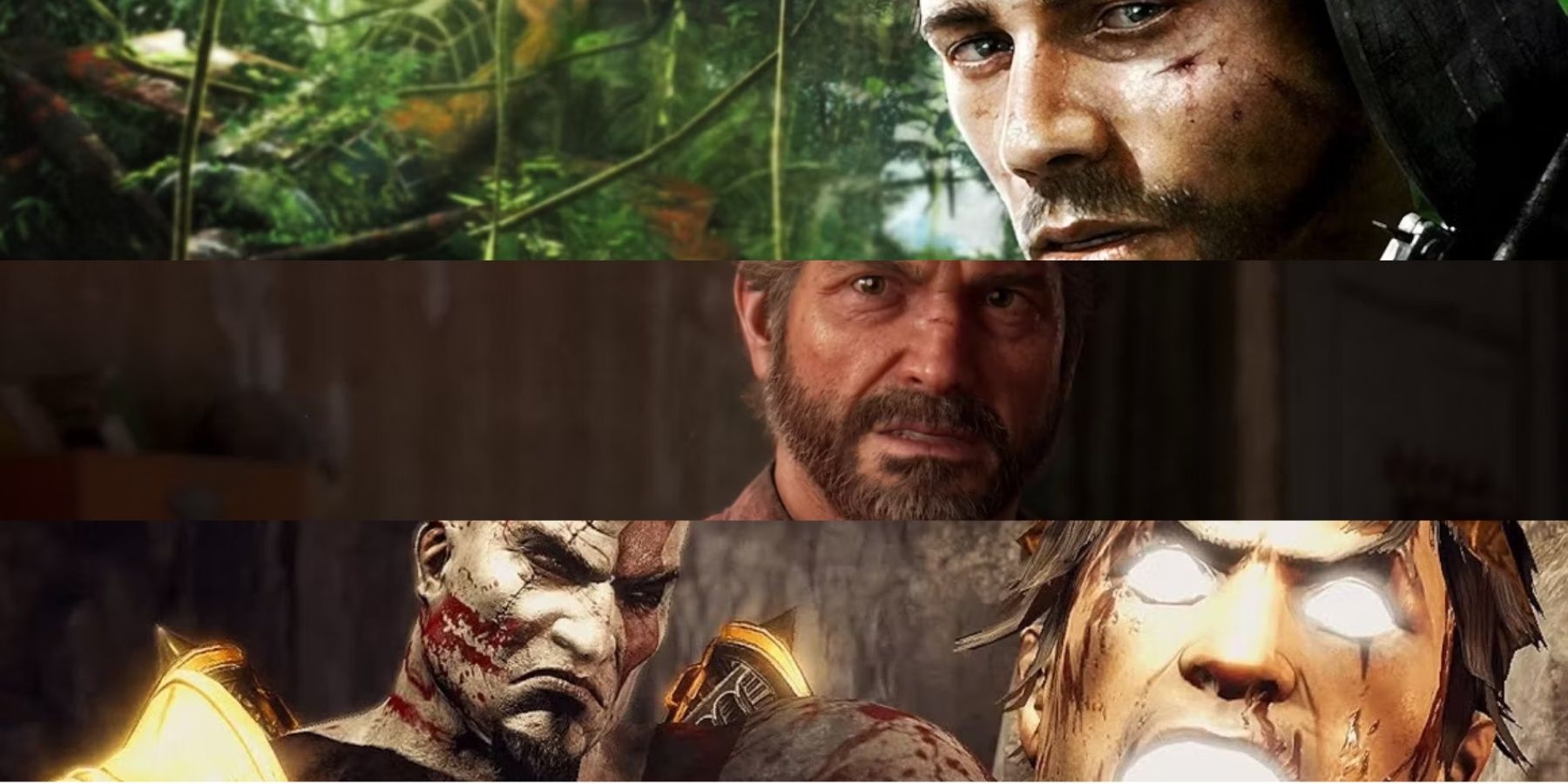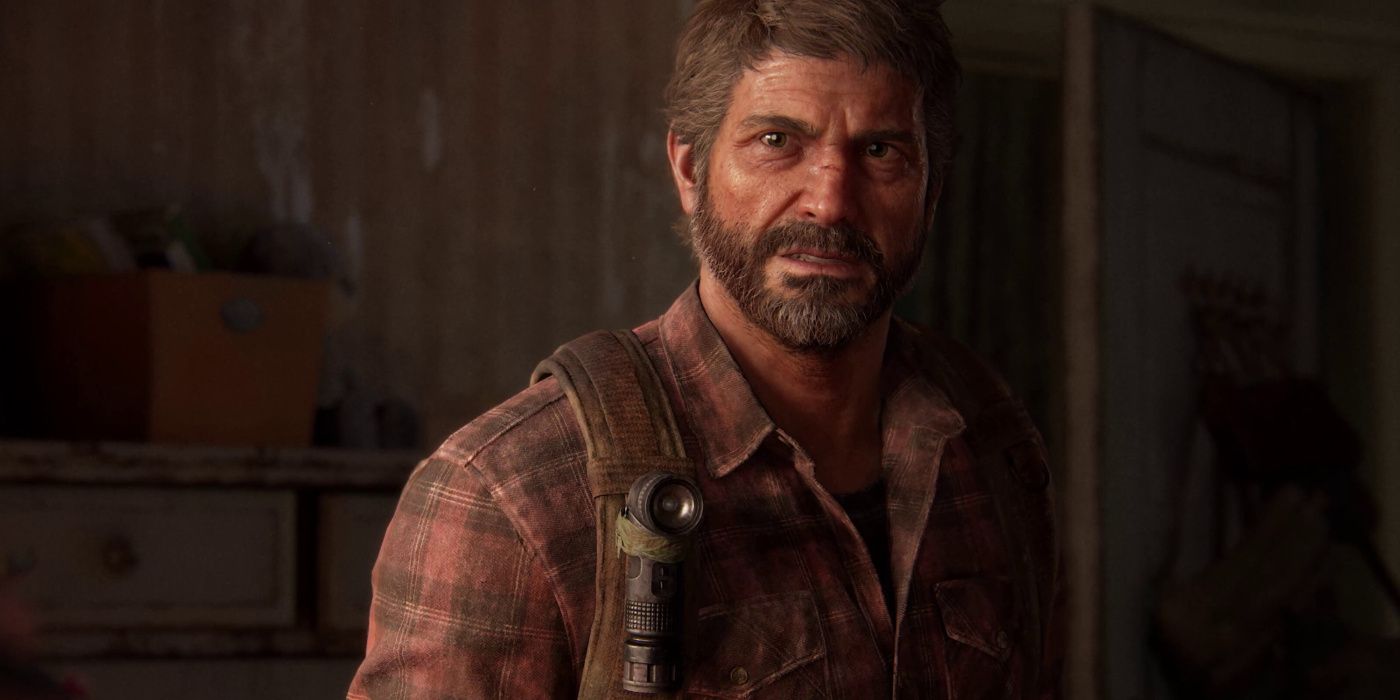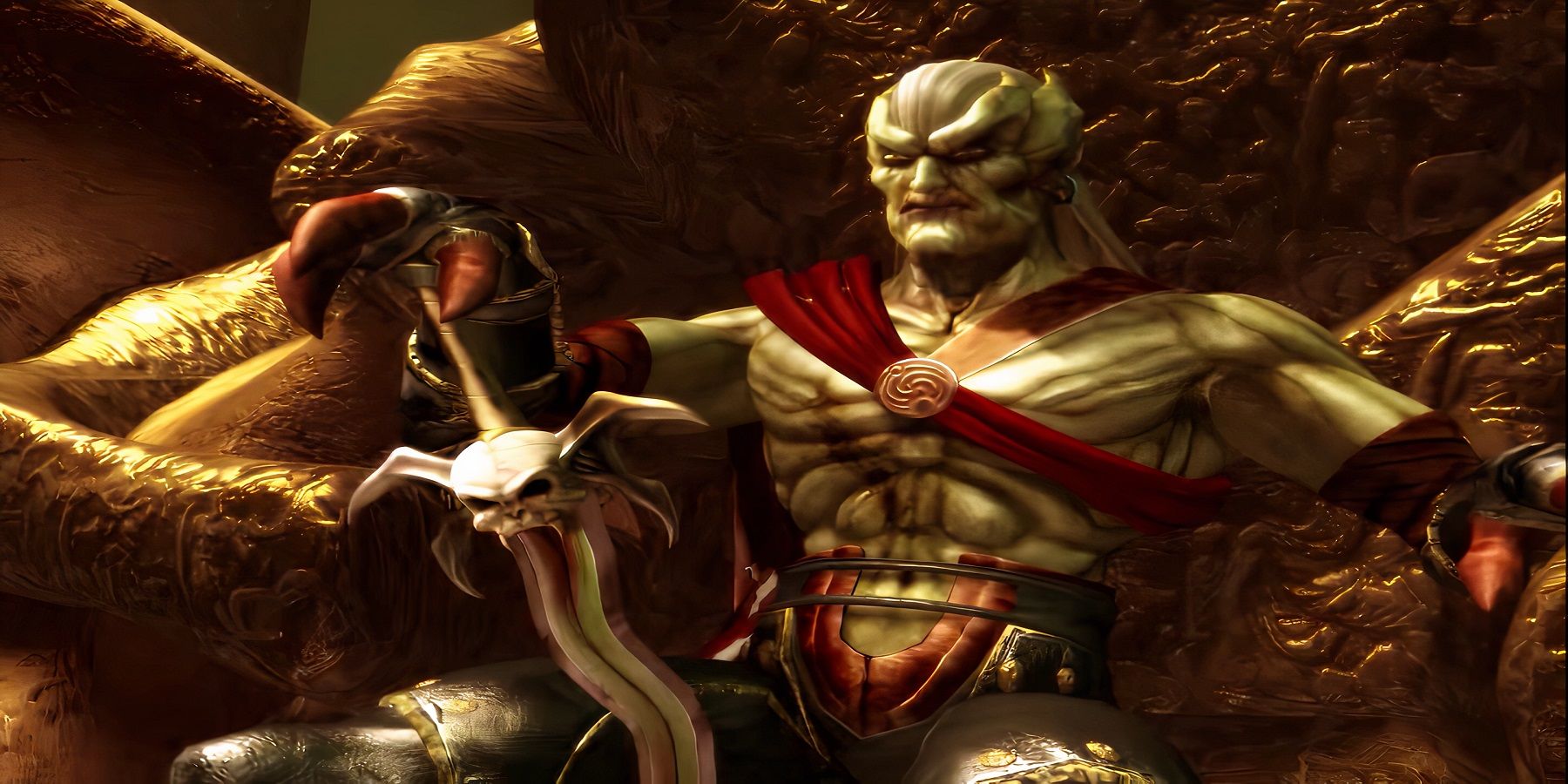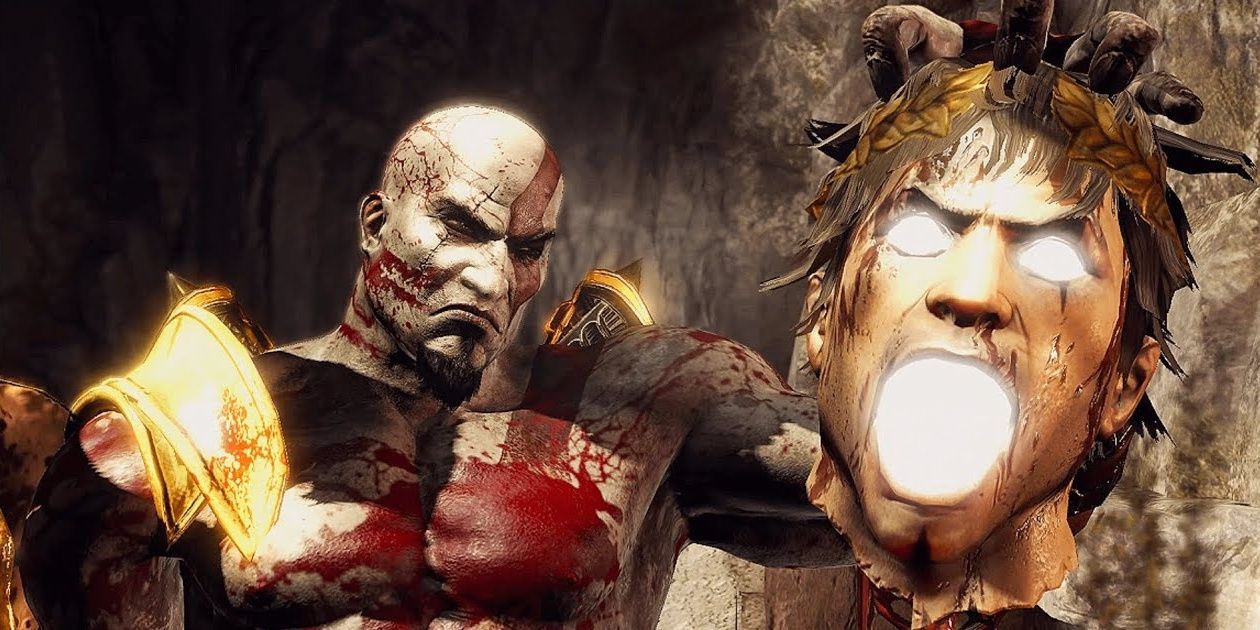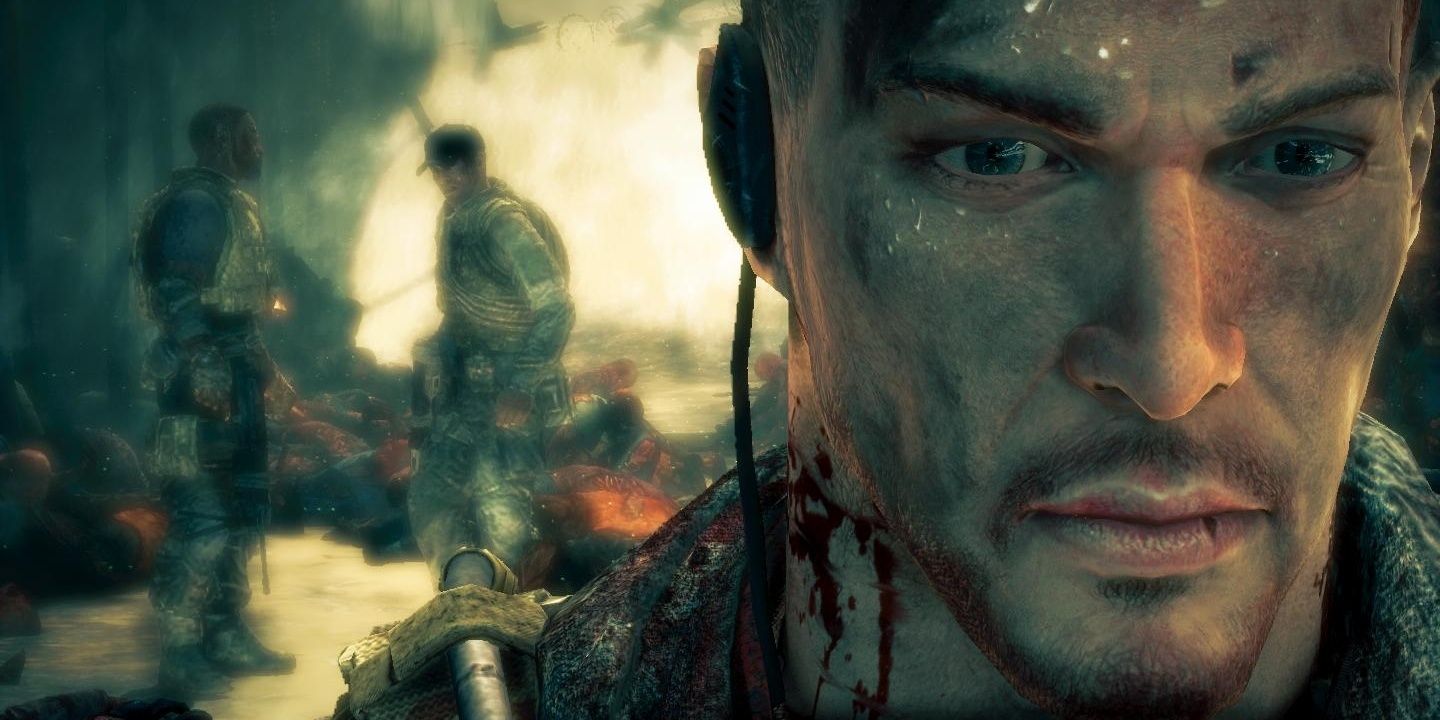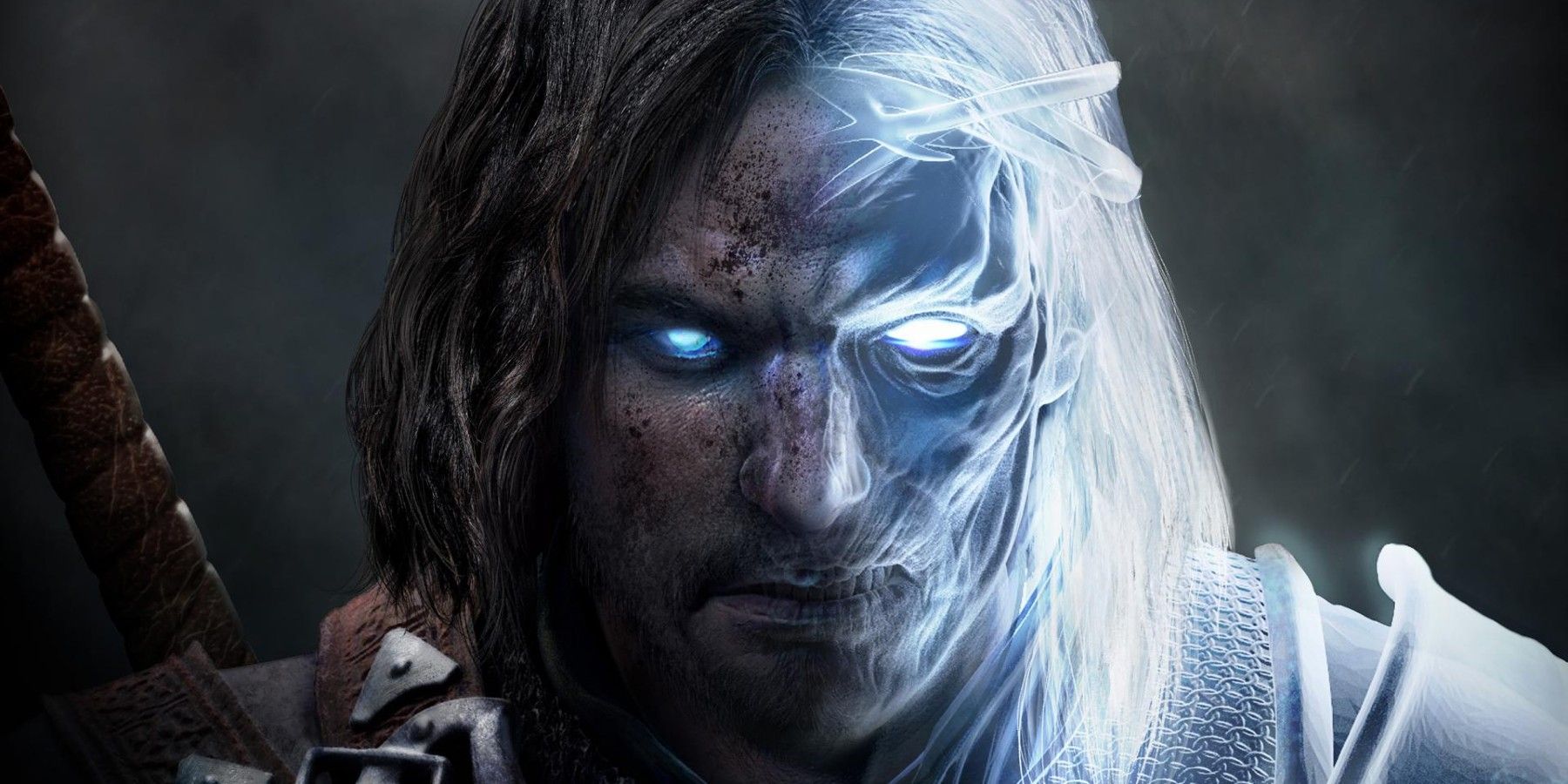Highlights
- Sometimes heroes in gaming can become monsters, as seen in characters like Jason Brody and Martin Walker. Moral lines get blurred.
- Playing as a character who may have villainous tendencies adds complexity to storytelling and challenges player perspectives.
- Characters like Joel, Kain, and Kratos start as heroes but evolve into morally ambiguous figures due to their journeys and choices.
In most stories, it is pretty easy to distinguish a hero from a villain. The hero does heroic things, the villain does villainous things. There can be room for moral ambiguity; the hero may turn to unsavory tactics, or a villain may have a totally reasonable goal, or at least become more sympathetic when the audience learns why they are the villain. But even then, there is often a distinction between good and evil. Even if audiences are not 100% sure the protagonist is doing the right thing, it is often easy to accept their actions simply because the villain is much worse. Sometimes though, the lines between hero and villain can get a bit wonky, and it reaches a point where they can't be distinguished on purely moral grounds. In fact, drawing parallels between the hero and the villain can be a great storytelling device.
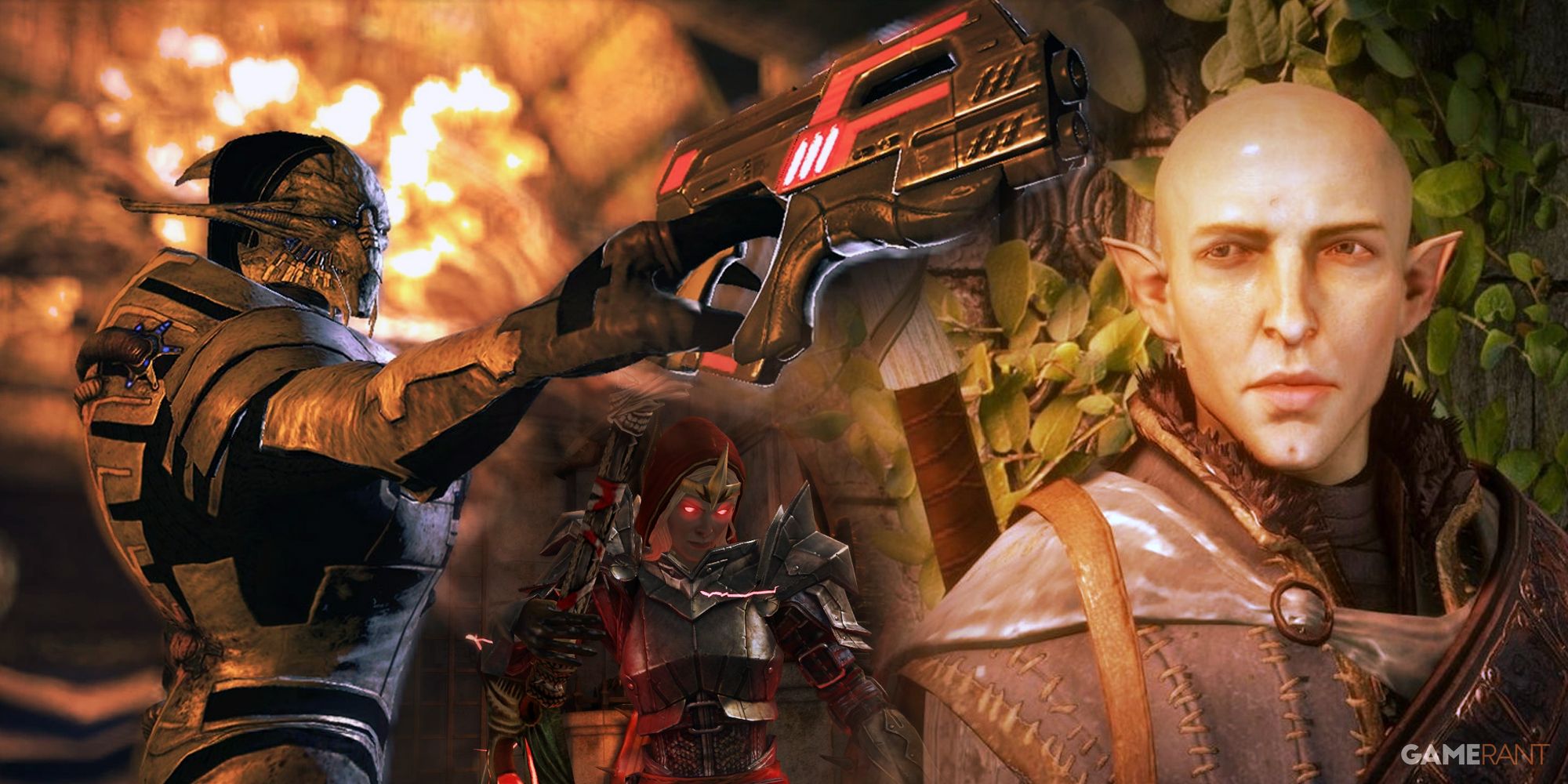
5 Best BioWare Villains With Heroic Tendencies
BioWare's history of excellent video game writing means that some of their most iconic villains could have been heroes in a different story.
Taken to its extreme, this offers a scenario where the "hero" doesn't feel all that much better to root for than the villain. They may be just as bad, or even worse. There are many ways it can happen. Maybe the stress of their journey pushed them to their breaking point. Maybe their circumstances tested the limits of their moral compass. Maybe they were set up to fail from the beginning. Maybe a traumatic experience changed their understanding of the world around them. Or maybe they were just never a good person to begin with. It might be obvious from the beginning, or it might only be clear at the end, but whatever the circumstances, these gaming "heroes" start to feel less heroic, and more like they are secretly a villain in someone else's story.
6 Jason Brody
From Tourist To Killer
Far Cry 3 begins with Jason Brody as a victim; a young college kid clearly out of his depth and pushed beyond the limits of his comfort zone. But that begins to change as he meets the strange inhabitants of the Rook Islands. His initial goal might even seem heroic; he just wants to save his friends and find a way off the island. But it turns out the only way to survive on a chaotic island full of pirates is through violence. Getting roped into Citra's warrior cult doesn't help, since she encourages him to embrace his primal instincts. Brody quickly proves to be a proficient killer, and while it could be argued that he was acting in self-defense and his victims were pirates that would have killed him too, it hardly excuses the taste he starts to develop for violence.
It gets to the point where Brody actually loses sight of his initial goal and begins making irrational choices. His pursuit of violence drives him to hunt down Vaas, and he actively chooses to go after Hoyt, despite not needing to, simply because he wants to kill him. Brody starts to feel less like a hero as the game progresses, and more like a rampaging monster in the final act. Fittingly, one of the endings allows him to complete his villain transformation, but even the "good" ending implies he's going to be spending the rest of his life wrestling with the killer instincts he's developed.
5 Joel Miller
Blinded By Attachment
Joel doesn't exactly look like a villain at the beginning of Naughty Dog's The Last of Us. He seems like an okay guy whose only crime was being right in the middle of ground zero for a zombie apocalypse. Sure, moral ambiguity is a core theme of the game, and personal trauma mixed with the pressure to survive pushes Joel to do some questionable things, but it doesn't seem that much worse than anything else happening around him. His primary objective also seems pretty noble: getting Ellie to a research lab that can study her immunity to the fungal virus that's been destroying civilization and maybe create a cure. Ironically, Joel's heroic status goes out the window when he finally arrives. Discovering that Ellie will die in the process of creating a cure, Joel decides the only logical course of action is to go on a murder rampage through the hospital, killing everyone who stands between him and his surrogate daughter.
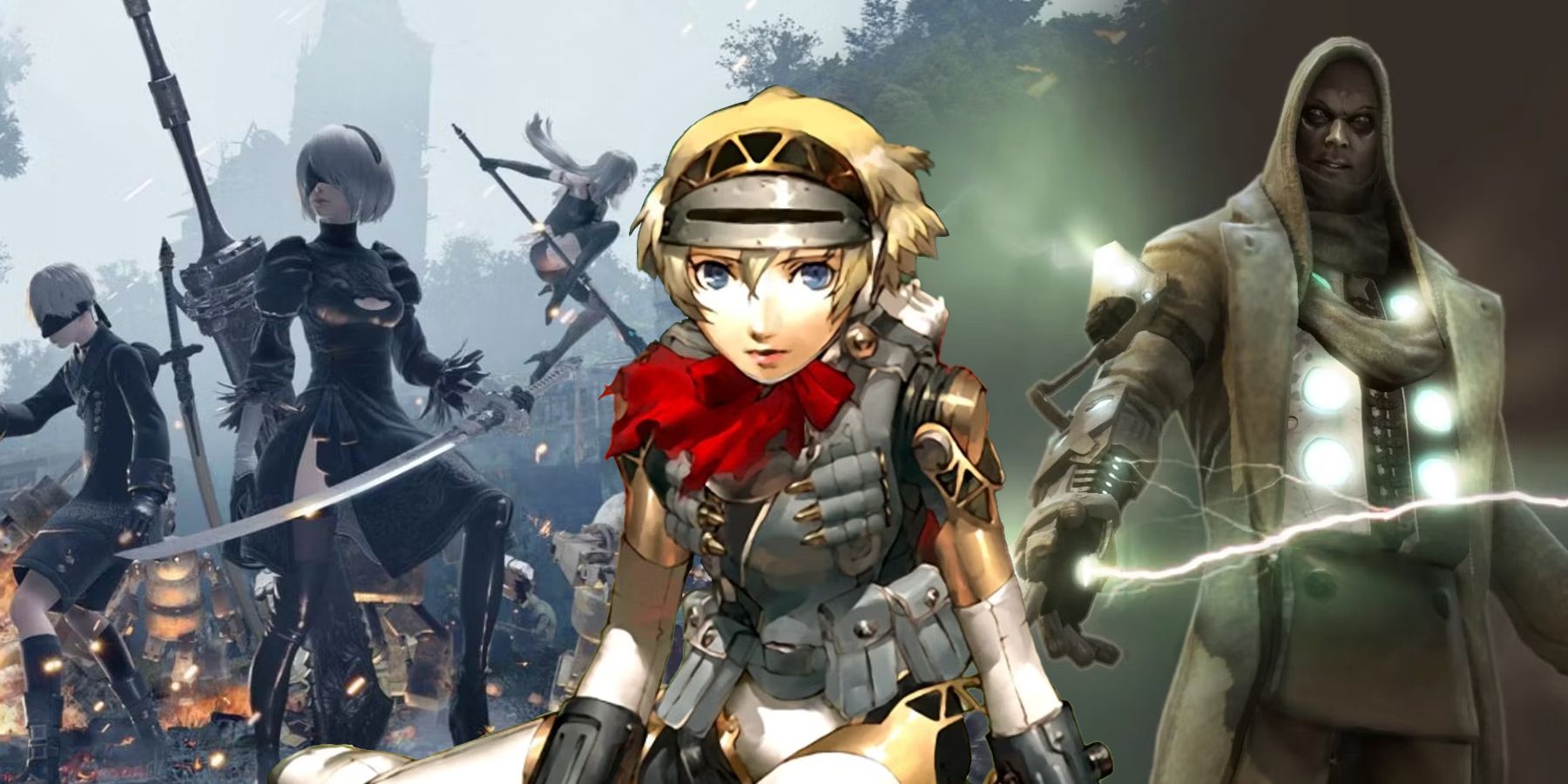
11 Games Where Players Fight The Hero At The End
There are several games where players can end up fighting the hero at the end for a variety of different reasons.
He does manage to rescue Ellie, but in doing so, Joel effectively screws over the entire human race. Furthermore, his actions killed most of the research team and destroyed the bulk of their research, likely annihilating any hope of a cure of any kind being discovered in the near future. As brutal as his death was in The Last of Us Part 2, it is completely understandable why Abby would be so upset with his shortsighted decision that she would want revenge.
4 Kain
Great Power Is Given To The Wrong Person
Legacy Of Kain: Soul Reaver
- Released
- August 16, 1999
- Developer(s)
- Crystal Dynamics
- Genre(s)
- Action-Adventure , Platformer , Fighting , Puzzle , Adventure
Even before he became a vampire, Kain was a power-hungry nobleman who didn't have very many sympathetic qualities. The only remotely relatable thing he had going for him was an understandable desire for payback against the people who assassinated him. Being turned into a vampire would only fuel his quest for power. Even if he initially wanted a cure, Kain's journey to track down and kill the Circle of Nine led him to embrace his new undead status and build his own vampiric empire. In the end, he had a choice: redemption through self-sacrifice, an act which would have restored the world and ensured it would never have to deal with vampires again, or he could institute himself as king of a post-apocalyptic world instead. Technically the player has a choice, but for many heroes it would be a no-brainer: save the world and end the vampire curse. The canonical ending is the one where Kain sacrifices the world to put himself in power.
Given how un-heroic Kain is throughout the game, it shouldn't be too surprising that the next game, Soul Reaver, actually makes him the villain. New protagonist Raziel finds no shortage of reasons to hate Kain, and spends much of the game trying to get his own revenge.
3 Kratos
Consumed By Vengeance
God of War
- Platform(s)
- PS2
- Released
- March 22, 2005
- Developer(s)
- Santa Monica Studio
- Genre(s)
- Hack and Slash
Kratos does come from a relatable position; Ares tricked him into killing his own daughter. It could be argued that his rage is quite justified, and the Athenian Pantheon was totally deserving of his wrath. That said, Kratos was kind of a terrible person, as one might expect from a man who felt the need to walk around with the severed head of one of his enemies. He let his rage consume him, and his single-minded drive for revenge left a lot of bodies in his wake. He was rightfully feared by mortals, and a lot of their blood was on his hands. It gets to the point where many of the puzzles are specifically designed so they can only be solved by throwing some poor innocent bystander to certain death while they're begging for mercy. He is so consumed by his anger, he doesn't care who gets in his way. By God of War 3, he doesn't seem any better than the gods he seeks to overthrow; maybe even a bit worse.
Interestingly, this is actually used as a basis for the Norse saga games, beginning with 2018's God of War and continuing into God of War Ragnarok. A big part of Kratos' modern character arc is recognizing how much of a monster he was in the first three games, and trying to do better so that his son doesn't follow the same path.
2 Martin Walker
You Really Think You're A Hero?
Spec Ops: The Line was always designed to make the player feel uncomfortable, and it went to great lengths to ensure that was reflected in its protagonist. Anti-heroes in a military shooter are nothing new - even Call of Duty had "heroes" who committed war crimes - but Martin Walker takes it to the next level. His initial task is a seemingly simple one: investigate the site of a dangerous sandstorm and look for evidence of a missing unit. Of course, things get out of control. This is where the campaign gets brutal, since Walker's attempts to "help" keep causing more problems. His effort to pursue Colonel Konrad, who has apparently decided to go all Colonel Kurtz on Dubai, takes Martin on an odyssey of despair. His recklessness, combined with a limited understanding of the situation he's in and a misguided delusion that he can actually help the people of Dubai, ends up doing far more harm than good.
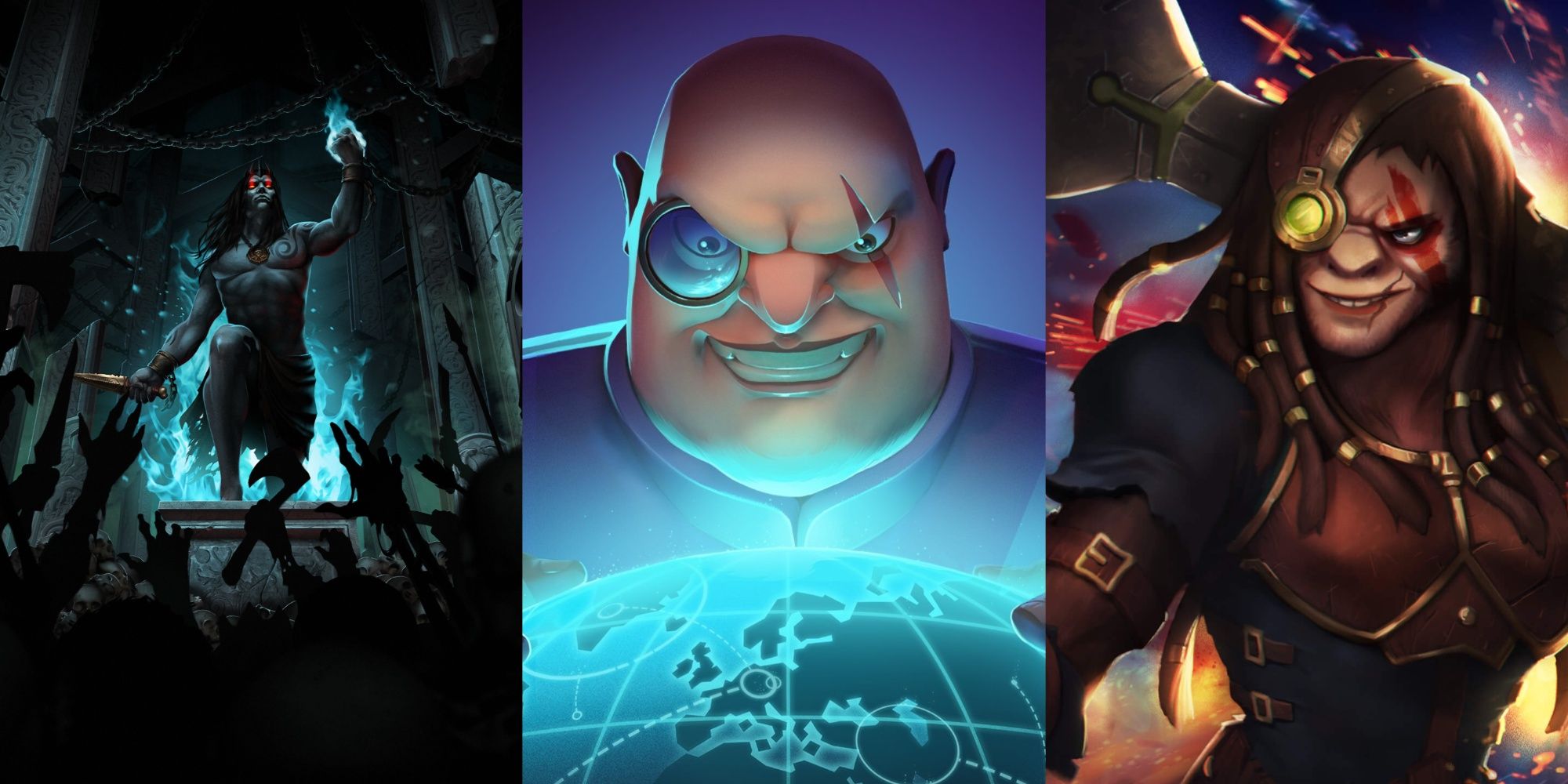
10 Strategy Games That Let You Play As A Villain
From Creature Lab to Ruinarch, these unique strategy games allow you to become the ultimate villain.
Once he's firing white phospherous at civillians, his actions definitely feel less heroic, and the game makes a point of calling him out on it. To top it all off, the apparent antagonist, John Konrad, has actually been dead for months. The "Konrad" he thought he was fighting was in his head, so he has actually spent the whole game becoming the monster he thought he was trying to stop, all while pushing the blame onto someone else.
1 Talion
Fighting Tyranny With Tyranny
Tolkien's world of Middle-earth is usually pretty clear-cut when it comes to heroes and villains. We know Sauron is evil, while Galadriel is good, but things got a bit murkier when it came to Talion's journey in Middle-earth: Shadow of Mordor and Shadow of War. The guy had to deal with some pretty traumatic experiences, losing his family to Sauron's forces and then getting stuck having to share his body with Celebrimbor's ghost is not an easy thing to deal with, but that was just the start. Orcs in this setting are portrayed as universally evil, but Talion's strategy against them could be described as... morally dubious at best. His primary tactic involves invading their minds, overwhelming them, and effectively mind-controlling them into regarding Celebrimbor the same way they do Sauron. It would be unquestionably evil in any other context, and it's hard to feel like the good guy while leading an army of orcs against their former allies.
That feeling is definitely warranted by the end of Shadow of War, where it turns out Talion might not have been as much of a good guy as previously thought. Talion is slowly corrupted by his powers, and it later comes out that Celebrimbor's actual plan was for Talion to get him into a position where he could usurp Sauron and take his place. This wouldn't be so much defeating evil as replacing one dark lord with another tyrant. His story reaches an even darker ending when he finally gets turned into one of the very Nazgul he's been fighting throughout the game, and only (presumably) freed after the events of The Return of the King.
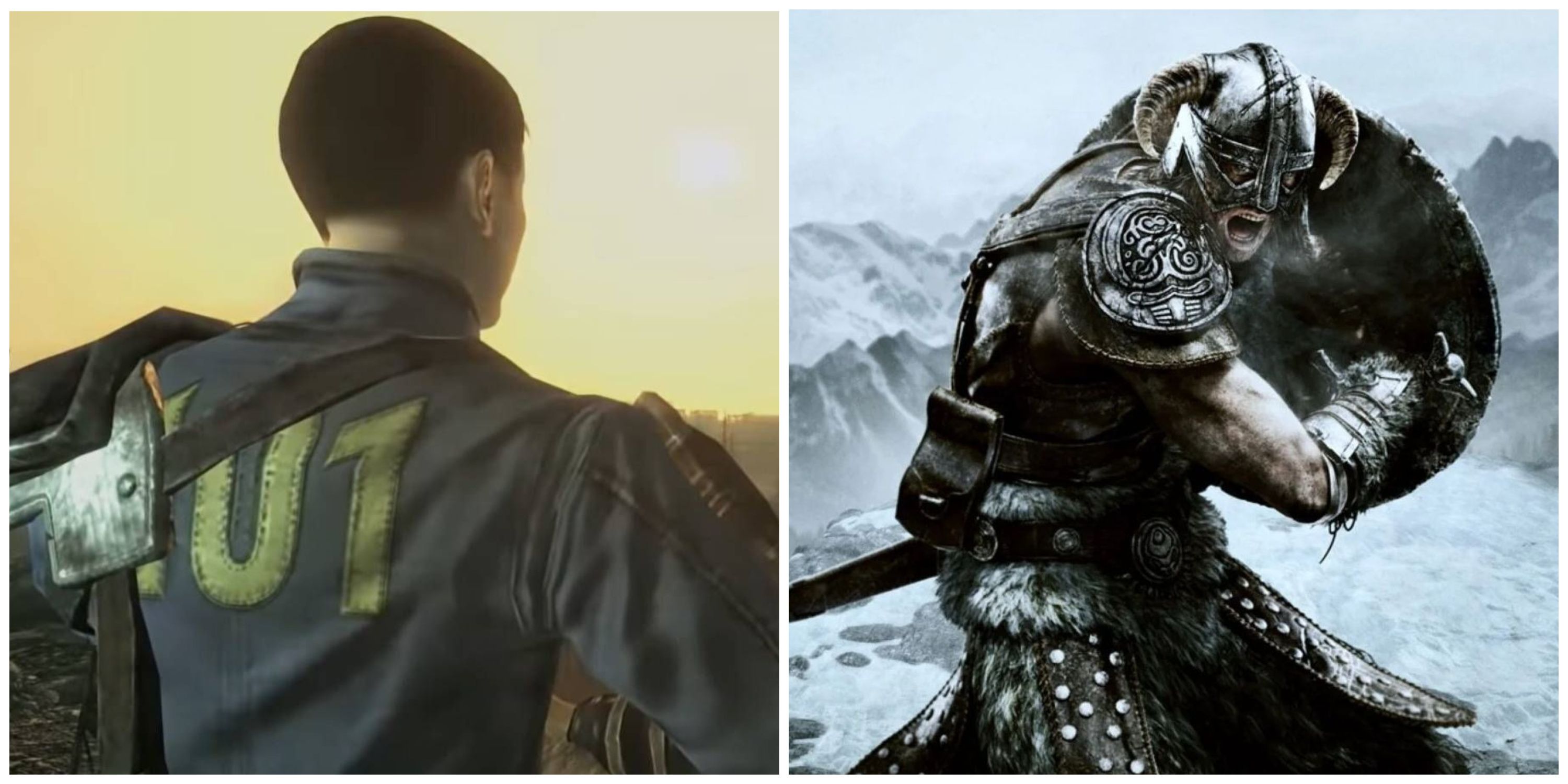
5 Best Bethesda Protagonists With Villainous Tendencies
Despite the heroics of most Bethesda protagonists, some aren't afraid to be a little bad, providing wastelands and fantasy worlds with villainy.

